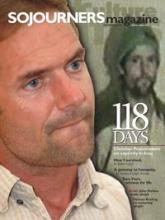OVER HOT FUDGE CAKE at a Mississippi Shoney’s, Charles Marsh poured out his story, hoping to be relieved of his white guilt. His confessor: community development pioneer and near-martyr of the civil rights movement John Perkins, whose writings had prompted the then-college student to ask hard questions about his Mississippi upbringing.
Marsh, who is now a theology professor and author, was staying with his grandmother, and he didn’t dare tell her about his visits with Perkins. “Although she was a very pious woman,” explained Marsh in an interview, “she held very traditionally Southern views on race. She would have been horrified to know I’d been spending my days with people involved in community organizing and civil rights.”
“She’s a Christian,” Marsh told Perkins. “First thing in the morning she opens her Bible, an old, worn, red Scofield edition, and does her devotions. She prays and listens to sermons on tape. But she won’t give an inch on her racial views. She thinks Martin Luther King was nothing but a troublemaker.”
“Well, he was,” Perkins pointed out.
“She thinks slavery was a good thing!” Marsh had never told anyone this about his beloved grandmother.
Perkins took a bite of his hot fudge cake. “Does your grandmother like blueberries?”
Marsh was bewildered. “I don’t know.”
“I love blueberries,” the then-50-year-old leader said, and in great detail he described all the ways he loved to eat blueberries: freshly picked, over ice cream, in blueberry pie. “I always keep blueberries in my refrigerator. When we get to the house, I’m gonna give you a bag of blueberries, and I want you to take them to your grandmother and tell her they’re a gift from me.”
Read the Full Article

